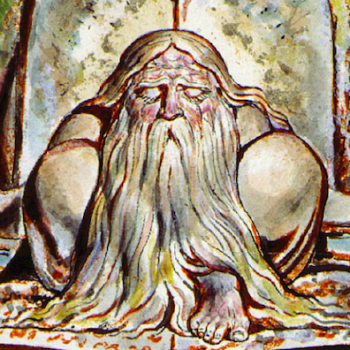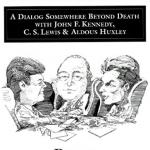I.
I’m continuing work on my next Gospel sources post. For those who want something a little more on the professional scholarly side, I was inspired partly by Anglican Bishop John A. T. Robinson’s book Redating the New Testament. It was published in 1976—more or less the zenith of the influence of mainline Christian liberal theology, and Robinson did not have a generally conservative reputation as a churchman. Nonetheless, Redating the New Testament makes the serious case that the entirety of the New Testament was written before the destruction of the Temple in 70 CE, considerably earlier than even most conservative academics would propose. I was half-expecting it to be only a kind of game, or even joke, but I was surprised by what a compelling case he made (though I’m still not sold on the notion that we can reliably date II and III John at all). It’s not exactly a “pop” theology book, but it isn’t highly technical or anything, and I think most people who have an interest in the New Testament and its textual history would find it engaging.
II.
I have some kind of injury in my thigh—probably a groin pull, though it seems to be even worse than those usually are. As far as I can tell, the muscles on both sides of my thigh are trying to cramp, meaning that there is literally no posture I can maintain that’s comfortable for more than a few seconds. And as for trying to move around, it’s worse than deadweight: not only is it useless for locomotion, it has to be delicately moved itself (usually with my hands, as if I’m my own marionette) if I don’t want a shooting pain that causes me to let loose a horrible scream of pain. So, uh, pray for me?
III.

Halloween (my third-favorite holiday) is coming up! A few years ago, my friend Eve Tushnet gave an excellent talk titled “The Humiliation of Authority in Horror Films,” which I’ve probably listened to a dozen times at least. Her jumping-off point is that one of the salient qualities of the horror genre—not a requirement, maybe, but a standard feature—is that which authorities you should trust goes topsy-turvy. Horror interferes with reality, disrupts it. Horror takes away our power to understand and, by understanding, control the world around us.
Conversely:
If you want to know what’s what in a horror movie, you should find the following authorities: a small child; a very old person (it’s best if they are mentally not all there anymore); someone who is definitely mentally ill; someone—you should definitely look to traditional beliefs and superstitions, especially if they are the beliefs and superstitions of ethnic minorities; and, religion. Those are the trustworthy guides to the world of the horror movie. Or, to put it the other way around, the way that you know that you’re in a horror movie is when modern science and governmental authority are untrustworthy and the people you should trust are those people—are the kids and the old and the traditional and the religious.
It’s a great talk, I really recommend it! In particular …
IV.
She goes on to offer an interpretation of the ending of The Exorcist that I’ve rarely heard, but which is theologically quite correct, far more so than the interpretation I have typically heard. Spoilers for a movie that came out fifty years ago, I guess, but. There are two priests who attempt to exorcize the demon possessing Regan: the elderly and experienced Fr. Merrin, and the younger, doubting Fr. Karras. The former dies while alone with the demon, prompting Fr. Karras to confront it in a rage and tell it to take him instead of the little girl. It does so, at which Fr. Karras jumps out a window to his death. Many people interpret this an act of self-sacrifice—giving his life for Regan’s, and then immediately ending his, thus protecting everyone else from the demon.
The thing is … no? This fails in multiple dimensions of Christian demonology. “Take me instead” is, technically, a pact with a demon, which ain’t a great start. (Even when Jesus exorcizes Legion and send them into the herd of swine outside Gadara, he grants them a request but does not strike them a deal, and he allows them the bodies of animals, not his own or some other person’s.) Furthermore, one of the specific comments pn exorcism and demonology in the Gospels is that demons, once cast out, are apt to return to their former victims or attempt to do so—what exactly is supposed to protect Regan from this fate? The fact that Fr. Karras killed the demon by killing himself? I really don’t know where this idea comes from (it also appears in 1998’s Fallen); demons don’t need bodies to “live,” they just like to hurt people by possessing them.

Eve’s opinion is that Fr. Karras here makes a disastrous error, and that the film’s ending is basically tragic. I haven’t seen it, and don’t know enough about William Blatty to be sure what his views are or would be likely to be, but her interpretation is about the only one that makes theological sense.
V.
I’m thinking of taking the blog in a new direction. Trying to address the intersection of faith, politics, culture, and intra-church politics and culture has grown exhausting, and I feel like I’m repeating myself—hence the significant drop in my output over the last couple of years. What I’m considering is instead offering commentary on Scripture (perhaps based on current lectionary readings); it would be more broadly applicable, and as a classicist I think I could do a decent job of it. Please pray for me about that as well.















